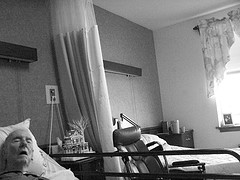Picture a case of workers’ compensation fraud. Chances are if you are like most Americans, the image in your head is a worker who claims to be injured and unable to work, but then goes trail running, competes in weight lifting competitions, and single-handedly builds his own house. Contrary to this popular image, the world of workers’ compensation fraud goes far beyond worker/claimant fraud and the most costly schemes are those involving employers and/or healthcare entities. In addition to being a concern in its own right, these complex workers’ comp fraud schemes often also involve fraud on a state or federal health care program and our Northern California government fraud attorney is committed to stamping out all forms of fraud on our government programs.
Charges Filed Against “The Godfather” (of Workers’ Compensation Fraud)
Known to some as “The Godfather,” chiropractor Peyman Heidary stands accused of leading an insurance fraud case that, according to a recent article in The Orange County Register, included fraudulent workers’ compensation claims. Heidary also goes by the alias “Number One,” a well-suited title since he is listed as the top person in numerous companies, including entities in the health care and legal fields. The Riverside County District Attorney’s Office has charged with Heidary with masterminding a scheme and leading a criminal group that established medical clinics and a law firm to facilitate the submission of thousands of workers’ compensation claims based on nonexistent or exaggerated medical conditions. Per the charges, the scheme also involved recruiting injured workers for Heidary’s companies followed by the preparation and submission of claims to insurance companies and the state worker’s compensation fund.
 Healthcare Fraud Lawyer Blog
Healthcare Fraud Lawyer Blog





 In the world of
In the world of  McKnight’s Long-Term Care News and McKnight’s Assisted Living News provide news updates to individuals in the senior care arenas. Recently,
McKnight’s Long-Term Care News and McKnight’s Assisted Living News provide news updates to individuals in the senior care arenas. Recently,  called state authorities to report suspicious cars and vans packed full (including the trunks!) wit homeless people. He suspected they might be ambulances wrongfully discarding poorer patients.
called state authorities to report suspicious cars and vans packed full (including the trunks!) wit homeless people. He suspected they might be ambulances wrongfully discarding poorer patients. 

 Advantage.” According to the OIG, taxpayers lose billions of dollars because of improper payments to MA plans. In FY 2013, HHS identified a 9.5% error rate for MA plans which corresponds to an estimated $118 billion in improper payments including $9.3 billion in overpayments and $2.6 billion worth of underpayments. This includes both accidental errors and fraudulent transactions.
Advantage.” According to the OIG, taxpayers lose billions of dollars because of improper payments to MA plans. In FY 2013, HHS identified a 9.5% error rate for MA plans which corresponds to an estimated $118 billion in improper payments including $9.3 billion in overpayments and $2.6 billion worth of underpayments. This includes both accidental errors and fraudulent transactions. This month, McKesson Corporation, a San Francisco-headquartered company that distributes pharmaceuticals, agreed to pay $18 million allegations brought by the Centers for Disease Control and Prevention (“CDC”) against the company. Per a
This month, McKesson Corporation, a San Francisco-headquartered company that distributes pharmaceuticals, agreed to pay $18 million allegations brought by the Centers for Disease Control and Prevention (“CDC”) against the company. Per a 

